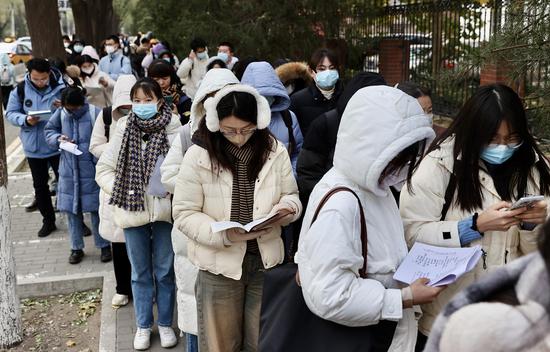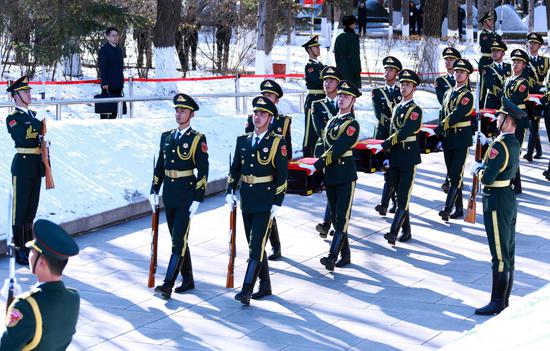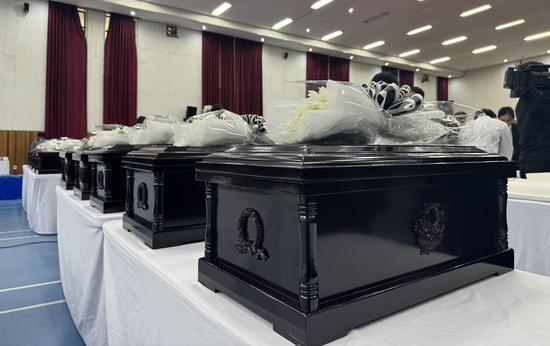On Tuesday, China's Ministry of Public Security released 10 typical cases of cracking down on cases of cyberspace violence and illegal crimes. Those cases included illegally hiring a group of online users to attack others, using hacking methods to obtain large volumes of personal information, and using PS and other technologies to maliciously defame others' image.
In recent years, cyberspace violence and illegal crimes have becoming increasingly frequent, leading to some individuals experiencing "social death," mental illness, and even suicide. This has severely disrupted the order of the internet and damaged the online ecosystem, causing a negative social impact. The Chinese public security authorities continue to maintain a "zero tolerance" attitude toward cyberspace violence and illegal crimes and have dealt with a large number of such cases, including insulting and defaming others, spreading rumors, and violating privacy.
In the first typical case, East China's Jiangsu public security organs targeted a case of a person surnamed Zhang who hired "internet troll army" -- a group of users who are paid to post online comments with vested interest on Chinese language websites -- to cyberbully others.
The internet security department of Jiangsu public security organs found that during his probation period, Zhang illegally obtained a victim's private information by installing tracking and eavesdropping devices in order to achieve long-term control over the victim. He spread and promoted indecent videos, images, and insulting articles about the victim through purchasing internet accounts and hiring an online "army." He also sent reports with false accusation to the victim's workplace in someone else's name, causing the victim to suffer from post-traumatic stress disorder. In January 2023, Zhang was taken into custody by the public security organs in accordance with the law. Currently, Zhang has been sentenced to six years in prison and fined 10,000 yuan ($1,397.96) for the crimes of infringing on citizens' personal information, provocation, and intentional injury in the first trial.
In the second typical case, Southwest China's Sichuan public security organs became aware of a criminal gang engaging in cyberbulling.
The internet security department of Sichuan public security organs found that the suspects surnamed Chen, Ma, Lu, Zeng, and others used hacking methods to obtain a large amount of personal information of citizens. After being hired by others online, they used methods such as exposing private information, making junk phone calls, filling out false organ donation information, sending fabricated reports, and creating and publishing derogatory images to carry out cyberspace violence against their victims. They forced victims to shoot apology videos or write apology letters, causing depression among multiple underage victims and even leading to increased risk of suicide. The criminal gang has been taken into custody by the public security organs, and the case is currently subject to further investigation.
In the third typical case, East China's Zhejiang public security organs cracked down on spreading defamation by suspects surnamed Zhang and others.
The Zhejiang authorities found that the suspects Zhang and Li fabricated and spread rumors such as "a female teacher at a certain middle school was being molested by the school leader" and "the improper lifestyle and chaotic relationships of the school leader at a certain middle school" for personal purposes. A large number of netizens followed to spread and promote the rumors, seriously endangering social order. Currently, Zhang and Li have been taken into custody by the public security organs, and the case is under further investigation.
In the fourth case, Jiangsu public security organs targeted a suspect surnamed Ji cyberbullying livestreaming anchors by repeatedly fabricating their defamatory information to gain followers. Currently, Ji has been taken into custody by the public security organs, and the case is under further investigation.
In the fifth case, South China's Guangxi public security organs targeted a suspect criminal gang provoking trouble online. The authorities found that suspects surnamed Wang, Lin, Tang, Xuan, Huang, Meng, and others, who were dissatisfied with a court's judgment, repeatedly posted maliciously edited and produced videos and posts online. They abused multiple judges through phone calls, misleading netizens to attack the judges, disturbing social order. Currently, Wang and others have been taken into custody by the public security organs, and the case is under further investigation.
In other five cases, local public security organs have cracked down on cyberspace-related cases including picking quarrels and provoking trouble, insulting others, and Illegal use of network information.
Both national and local cybersecurity departments of public security authorities nationwide will continue to advance the "Clean Network 2023" special operation, resolutely punishing illegal activities of online violence and crime in accordance with the law. At the same time, they will strengthen departmental cooperation, enhance comprehensive governance, eradicate the breeding ground for online violence, correct the previous approach of "no punishment for the masses," and strive to create a clean and clear cyberspace.
China in September released guidelines to severely punish cyberspace violations that target minors, involve paid posters, fabricate "sexual" topics and use artificial intelligence to disseminate illegal information. The guidelines on punishing crimes of cyberspace violence in accordance with laws were jointly issued by China's Supreme People's Court, China's Supreme People's Procuratorate and China's Ministry of Public Security.


















































 京公网安备 11010202009201号
京公网安备 11010202009201号